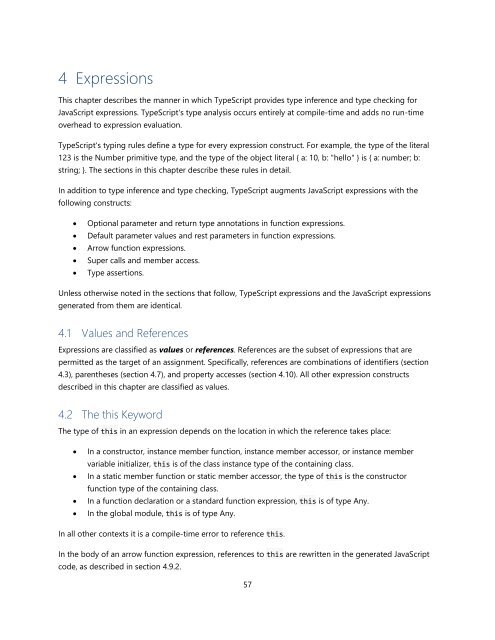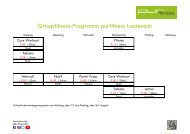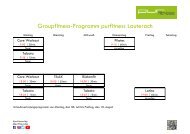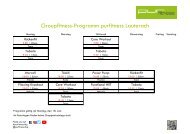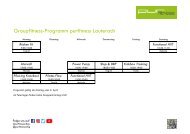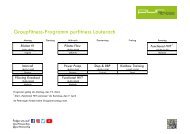TypeScript Language Specification v1.5
TypeScript Language Specification v1.5
TypeScript Language Specification v1.5
Create successful ePaper yourself
Turn your PDF publications into a flip-book with our unique Google optimized e-Paper software.
4 Expressions<br />
This chapter describes the manner in which <strong>TypeScript</strong> provides type inference and type checking for<br />
JavaScript expressions. <strong>TypeScript</strong>'s type analysis occurs entirely at compile-time and adds no run-time<br />
overhead to expression evaluation.<br />
<strong>TypeScript</strong>'s typing rules define a type for every expression construct. For example, the type of the literal<br />
123 is the Number primitive type, and the type of the object literal { a: 10, b: "hello" } is { a: number; b:<br />
string; }. The sections in this chapter describe these rules in detail.<br />
In addition to type inference and type checking, <strong>TypeScript</strong> augments JavaScript expressions with the<br />
following constructs:<br />
<br />
<br />
<br />
<br />
<br />
Optional parameter and return type annotations in function expressions.<br />
Default parameter values and rest parameters in function expressions.<br />
Arrow function expressions.<br />
Super calls and member access.<br />
Type assertions.<br />
Unless otherwise noted in the sections that follow, <strong>TypeScript</strong> expressions and the JavaScript expressions<br />
generated from them are identical.<br />
4.1 Values and References<br />
Expressions are classified as values or references. References are the subset of expressions that are<br />
permitted as the target of an assignment. Specifically, references are combinations of identifiers (section<br />
4.3), parentheses (section 4.7), and property accesses (section 4.10). All other expression constructs<br />
described in this chapter are classified as values.<br />
4.2 The this Keyword<br />
The type of this in an expression depends on the location in which the reference takes place:<br />
<br />
<br />
<br />
<br />
In a constructor, instance member function, instance member accessor, or instance member<br />
variable initializer, this is of the class instance type of the containing class.<br />
In a static member function or static member accessor, the type of this is the constructor<br />
function type of the containing class.<br />
In a function declaration or a standard function expression, this is of type Any.<br />
In the global module, this is of type Any.<br />
In all other contexts it is a compile-time error to reference this.<br />
In the body of an arrow function expression, references to this are rewritten in the generated JavaScript<br />
code, as described in section 4.9.2.<br />
57


